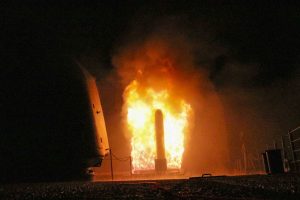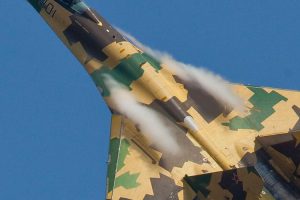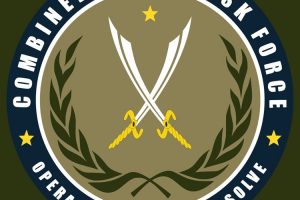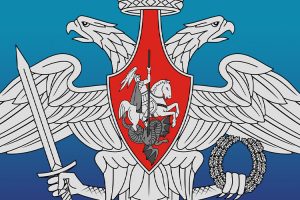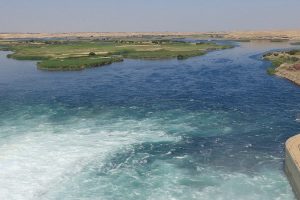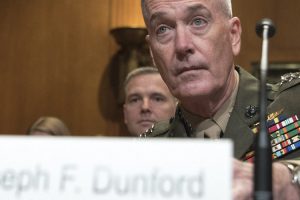Representatives of the Coalition and US State Department met local officials in Raqqa, Syria on August 6, the third such meeting in as many weeks.
The Syrian Democratic Forces and the Democratic Union Party (PYD) reported that the meeting in Ayn Issa was between Coalition and US State Dept representatives, and representatives of Raqqa Civil Council, Tabqa Civil Council, the Syrian Democratic Council, Raqqa Internal Security Forces, SDF commanders and media officers, and others.
The meeting took place around 50km (31 miles) north of Raqqa city in Ayn Issa, which is home to Raqqa council until the city is captured from Islamic State.
Meeting between US-led coalition and SDF and northern Syria federation today in Ayn al Issa https://t.co/hmEABMsVwg h/t @mustefa2bali pic.twitter.com/ZcLDufwgiE
— Wladimir (@vvanwilgenburg) August 6, 2017
The local reports stated that the meeting was “attended by Mr. Alex Starr, Representative of the US State Department for Civil Affairs in the International Coalition, Mr. Camberly Belley, Representative of the US State Department for Political Affairs,” and a named Coalition special forces commander.
The US State Dept did not respond to Grasswire’s questions about the event, but an official earlier confirmed Starr’s attendance at a similar July 18 meeting.
However, a Coalition spokesperson confirmed to Grasswire in an August 9 email that a senior US Special Operations Force commander responsible for training was present at the meeting. The Coalition did not confirm his identity, citing operational security reasons.
“His role was to represent the Coalition in discussions to transition security responsibilities in Raqqah to local representative councils and their designated security forces post Da’esh,” the spokesperson said.
“Coalition members maintain a relationship with the SDF, the RCC, and the RISF to assist our partners in counter-Da’esh operations and to assist them to secure newly liberated territory,” the spokesperson said. “The future of Raqqah’s governance and security is representative of the local populace.”
According to the releases, the meeting discussed post-liberation scenarios and potential challenges, specifically post-liberation security for Raqqa city and governorate, and the need to “institutionalize military and security work, and provide all the technical and military capabilities needed to accomplish military and security tasks professionally” in partnership between the Coalition, the SDF and the RISF.
The PYD said the meeting also discussed what it called the most important challenges: interventions by unspecified regional countries, and the attempts of the Syrian regime to obstruct the liberation campaign.
Coalition commander meets Raqqa Civil Council
British Coalition commander General Rupert Jones met Raqqa Civil Council in Ayn Issa on Sunday, July 23, the CJTF-OIR deputy commander’s fourth meeting with the interim administration.
With interim #Raqqah Civil Council. Ready to secure gains of liberation and heal scars left by ISIS @coalition @CJTFOIR @UKagainstDaesh pic.twitter.com/zANd18XajJ
— Rupert Jones (@rupertthjones) July 23, 2017
According to the ANHA news agency, Jones attended several meetings focused on education, relief and reconstruction, including the repair of water and electricity supplies. He also met the co-chairs of the council and reiterated that the Coalition intended to support Raqqa Civil Council after its liberation, ANHA reported.
Speaking at a press conference after the meetings, Jones said that the liberation of Raqqa is not the end, but the beginning of a process. “Daesh is not defeated with the liberation of Raqqa,” he said.
“The real healing starts once the fighting is over. The people of Raqqa, the city of Raqqa will have been through an extraordinary trauma whilst under Daesh occupation, and that is what we have been discussing with the Raqqa Civil Council today.”
“I have met with this council on four occasions now, here in Ayn Issa. It’s an interim council, it is focused on helping the people of Raqqa, it is representative of Raqqa, and it is – and it must – act in the interests of the people of Raqqa, not only of the broader province but of the city itself.”
Jones praised the council’s work with NGOs, the United Nations and unspecified others to bring humanitarian aid to displaced people, but he noted that this is just the start and “there is a great deal more to do.”
Arab 24 released video of the visit:
Jones also visited Ayn Issa’s large camp for internally displaced people.
Children outside IDP camp north of #Raqqah. #CJTF defeating ISIS to secure them the future they deserve @coalition @UKagainstDaesh @CJTFOIR pic.twitter.com/CoHtG5Xmh0
— Rupert Jones (@rupertthjones) July 23, 2017
State Department-led meeting
Jones’s meeting came just five days after representatives of the US State Department’s START-Forward team in Syria met with members of Raqqa Civil Council. The July 18 meeting focused on aid, mine clearance and US support for the council.

A State Department official told Grasswire that Alex Starr and mine clearance expert Murf McCloy were among those who met council representatives.
Special Presidential Envoy to the Coalition Brett McGurk confirmed on August 4 that USAID disaster relief specialist Al Dwyer was leading the humanitarian response in Raqqa.
McGurk was at pains to emphasise that, other than delivering aid supplies to the region, the US commitment is to stabilisation and not nation-building. He said that stabilisation means demining, rubble removal, and the rehabilitation of power, water and sewage infrastructure to allow people to return to their homes.
Parts of the meeting were filmed by Arab 24:
The PYD, the political party linked to the Syrian Kurdish YPG which is the major component of the SDF, said in a press release that a series of meetings focused on cooperation with the council to solve the problems it faces.
The PYD said representatives of NGOs which focus on demining, restoration of infrastructure, relief and humanitarian work also attended meetings. Grasswire has contacted some of the NGOs listed the PYD says attended the meetings but none has yet confirmed their attendance.
Two reps of #US Department of State met w/ #Raqqa Civil Council & discussed rebuilding liberated areas. #ISIS #Syria pic.twitter.com/qvvKrKbpkm
— ARTA FM (@arta_fm) July 19, 2017
A PYD press release said meetings included discussion on how best to renovate the infrastructure, to open roads and repair bridges, and restore the water and electricity network. It was decided to set a timetable to start the restoration of Tal As-Saman transformer station to return it to service as soon as possible.
The current situation for displaced people and that of civilians in liberated towns and villages was also discussed, in order to prepare for the return of a more normal life for Raqqa, ARA News reported.

Omar Alloush, a member of Raqqa Council, said that around 1,000 tons of aid had so far been received and distributed to camps and villages by the Office for Humanitarian Affairs. Alloush said that approximately 600 tons of additional aid was on its way and the council expects delivery of aid to continue on a regular basis. The source of the aid was not specified.
Alloush told Arab 24 that the visit of the delegation was “recognition by the US State Department of Raqqa Council.”
Mine clearance expert warns support is limited
H. Murphey “Murf” McCloy, Jr. retired as a US Marine Colonel in 1993. He then worked in humanitarian demining with the United Nations in Somalia and Angola before joining the US Department of State as Demining Coordinator in Bosnia and Herzegovina.
In 1998, he became the State Department’s Senior Demining Advisor and Mine Action Program Manager.
McCloy again semi-retired in November 2007, continuing to work part-time for the Department of State’s Office of Weapons Removal and Abatement from his home in Colorado.

Speaking after the meetings, McCloy said:
“It’s a coordination meeting, so that we’ll know how to, how the people who have the capabilities of getting rid of explosive remnants of war, how they will know what needs to be done first, and we need to get that information from the officials from Ar-Raqqa.”
“Very limited support, so we have to very, we have to be very careful about how we focus the capabilities that we have. We can’t clear everything, it’s going to have to be a very selective process and that’s why we need the coordination.”
McCloy told VOA the meeting discussed demining the city, rebuilding bridges and roads, and the the electrical grid, and that work was ongoing in areas recaptured from ISIS.
“We have got people working here in the Raqqa area, Ayn Issa, Tabqa Dam, as well as the Tabqa town, and Manbij,” he said.
On August 4, McGurk said that 400 critical infrastructure sites have been identified in Raqqa, and that “about 100 of these sites are really the priorities.”
START-Forward
START-Forward is a branch of the State Department’s ongoing Syria Transition Assistance Response Team program. The State Department earlier told Grasswire that the program “grew out of a concerted State-USAID-DoD planning process” and is focused on “meeting immediate needs through the provision of humanitarian assistance, clearing explosive remnants of war, and the restoration of essential services to enable people to return home and to prevent the return of ISIS.”
The official declined to provide details on the team’s size and location, nor the logistical details of aid deliveries, citing personnel security.
A #US State Department delegation in #Syria , meeting with officials from #Raqqa Civil Council. #ISIS #SDF pic.twitter.com/vMAJX3tq0y
— ARTA FM (@arta_fm) July 20, 2017

